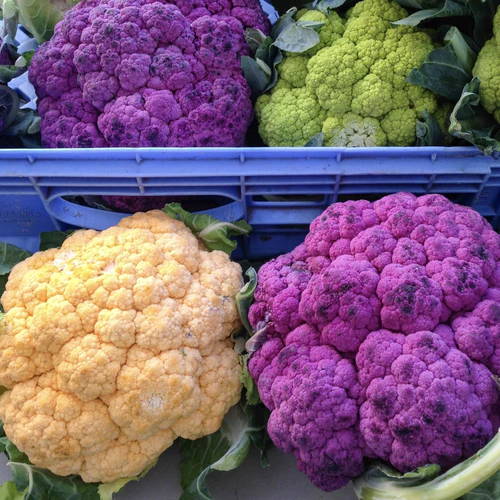the art of vegetable banking
by team nuut

Eating a healthy balanced diet is often one of the casualties of a busy lifestyle.
Vegetable banking, where we inhale lots of vegetables a few times a week and ignore good nourishment on the days in-between, is a common problem for many. It’s important to realise that the body isn’t a bank that can retain nutrients to be drawn when our systems require it. A healthy, lean and strong body relies on daily deposits to ensure good health and optimum health.
We grilled health coach Brenda Janschek, an ambassador for Jamie Oliver’s Food Revolution Day, on how to provide the very best nourishment for your body. Without the binging.
Brenda Janschek’s top tips
1 Choose your fresh produce wisely
Buy what's in season to ensure freshness, higher nutritional value, quality, flavour, and value for money. It pays to note that when crops need to be transported, they are harvested early and then refrigerated to ensure they stay intact while they are being transported. Often once they reach their destination, they need to be heated in a hot house to artificially ripen which changes the flavour, texture, nutrition and the taste as well.
2 Buy organic
Choosing organic ensures no synthetic chemicals or genetically modified food are used. Consider referring to the Dirty Dozen and Clean 15 by the Environmental Working Group when choosing what fruit and vegetables to buy organic. For example, strawberries are high on the list as they are heavily sprayed with chemicals. Items like avocados, pineapples and eggplants, and other thick-skinned fruit are safe to buy non-organic.
3 Sip for great health
When you don't have fresh fruit and vegetables on hand and you’re on the hop, the next best thing to do is grab a nourishing plant-based protein drink, like nuut, to give your body everything it needs.

This nuut smoothie fuels my body with everything it needs.
GUT-LOVING CHOCOLATE TASTING TONIC
4 Choose a variety of colourful fruits and vegetables.
Eating the rainbow ensures you're getting enough fibre, vitamins, minerals and antioxidants to protect against illness, bone density loss, digestive problems, and improve gut health.
5 Shop at Farmers Markets instead of supermarkets
It ensures you are buying quality, flavour, and variety. The produce will be fresher plus you're supporting the farmers. You can find exciting things like purple asparagus or different types of heritage tomatoes which you can't always find in a supermarket. Our gut bacteria rely on us eating a wide variety of plant foods to feed them, so in return they make things like metabolites and nutrients that keep us healthy. Variety in the foods we eat is key to a healthy gut!
6 Cook your vegetables in a way that helps them retain as many nutrients as possible.
Vitamin C, folates and B vitamins, in particular, can be sensitive to cooking. Especially when cooking for longer lengths of time and when cooking in water.
The best cooking methods to retain nutrients are as follows -
Oven cooking, like roasting and baking, does not have a significant effect on most vitamins and minerals, except for B vitamins in meat.
Microwaving is great because it preserves most nutrients due to short cooking times.
Steaming is one of the best cooking methods for preserving nutrients, including water-soluble vitamins, because it cooks gently. The exception to this is kale which contains powerful antioxidants - polyphenols and carotenoids. These are lost during steaming but preserved when sautéing. The downside of steaming is that veggies can often taste bland, but a touch of seasoning can easily fix this.
7 Be creative in the kitchen.
While greens usually make up the base of most salads, think outside the box and swap your iceberg lettuce with bitter greens such as rocket, radicchio or watercress which are great detoxifiers, as are brassica vegetables like broccoli, cabbage and brussels sprouts. Add beetroot packed with vitamins and minerals and don't forget to add the beetroot leaves to your salad which are even healthier than the beetroot itself! This Super Cleanse Salad is one of my favourites.
Drink your greens! A salad can easily become a smoothie to ensure your daily vegetable intake. My favourite smoothie combination involves lots of kale, celery, cucumber, basil, avocado, mint or coriander, with some green apple and ginger. Here's a recipe for you to try: https://brendajanschek.com/recipe/ginger-mint-and-green-apple-smoothie/